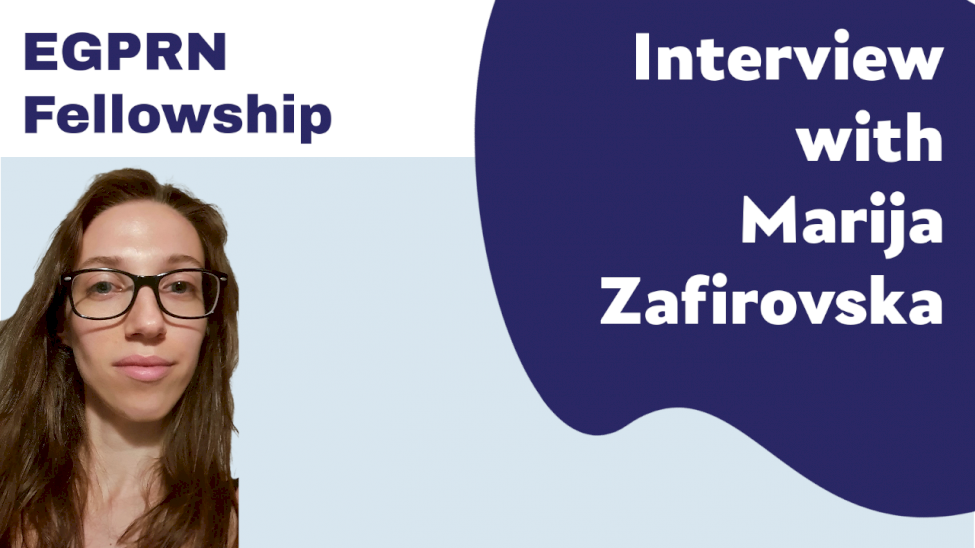The EGPRN offers fellowship program for primary care researchers who are early in their research careers, and who would like to be mentoring during a Zoom-based practical course on research skills.
Here is the interview with one of the current fellowship Marija Zafirovska. We hope the interview gives inspiration and encourages those who plan to apply the program.
- How has your experience been on the EGPRN fellowship programme?
I am quite satisfied with the EGPRN fellowship programme. When we started in December 2020, I had limited experience in research, since I had worked only on one research before in which we analyzed quantitative data. Being a fellow helped me in building up my knowledge about various types of research, and also in fortifying the basics I knew before. Dr. Michael Harris is a wonderful mentor. He guided us from the process of creating a research question to organizing the project and creating a protocol. What I am extremely grateful for is that he tailored the programme to our needs, which means he helped us in filling up the gaps in knowledge we had from before, he taught us new things in a very comprehensible manner and organized meetings with other experts in order for us to learn as much as possible. Working with colleagues from other countries added a unique perspective to our learning and creating process. We all brought something different to the table from our experiences which I think contributes immensely to our strength as a team.
- How has the fellowship supported your professional growth?
The year that I started working with the fellowship was also the first year of my PhD studies. While in my PhD studies we were more focused on work with quantitative data and systematic reviews, with the fellowship I was able to explore qualitative research more in-depth. So, in a sense, my participation in the fellowship was quite complementary to my studies. The fellowship also granted us the possibility to work with a wider network of specialists in family medicine, researchers and young general practitioners. Because of this, we managed to share our protocol with colleagues and include more countries in our research. The fellowship helped me, not only in learning and accumulating knowledge but also in using said knowledge in practice and gaining more experience as a researcher in big international projects.
- What has been particularly memorable?
The first time we all met in person was especially memorable for me. It was at the 93rd EGPRN Meeting in Haale, Saale in Germany where we were presenting our protocol titled “What do people without a healthcare qualification think are the advantages and disadvantages of COVID-19 vaccination? A European research protocol from the EGPRN Fellows.” Even though all of us were stressed, we managed to do a great presentation together and start a discussion with other researchers about our topic. From that point onward I think we grew closer as a team, and every time we meet, I am happy that we continue to work on our research but also connect and share experiences as colleagues and friends.
- What would be your message to future EGPRN fellows?
Don’t be afraid to ask questions, even if you are someone that has experience in research. A good researcher is never afraid of asking “stupid” questions. Dr Michael Harris is your mentor, but so are the other EGPRN fellows, and so are you – we all have something to bring to the table. My other message is not to give up if you feel stuck in some step in the project - communicate with the other fellows and share your ideas and concerns. Good teamwork is what will give fruit to your research. And last but not least, enjoy the process! Research and learning are amazing.
Click here to learn more about the EGPRN Fellowship programme.

